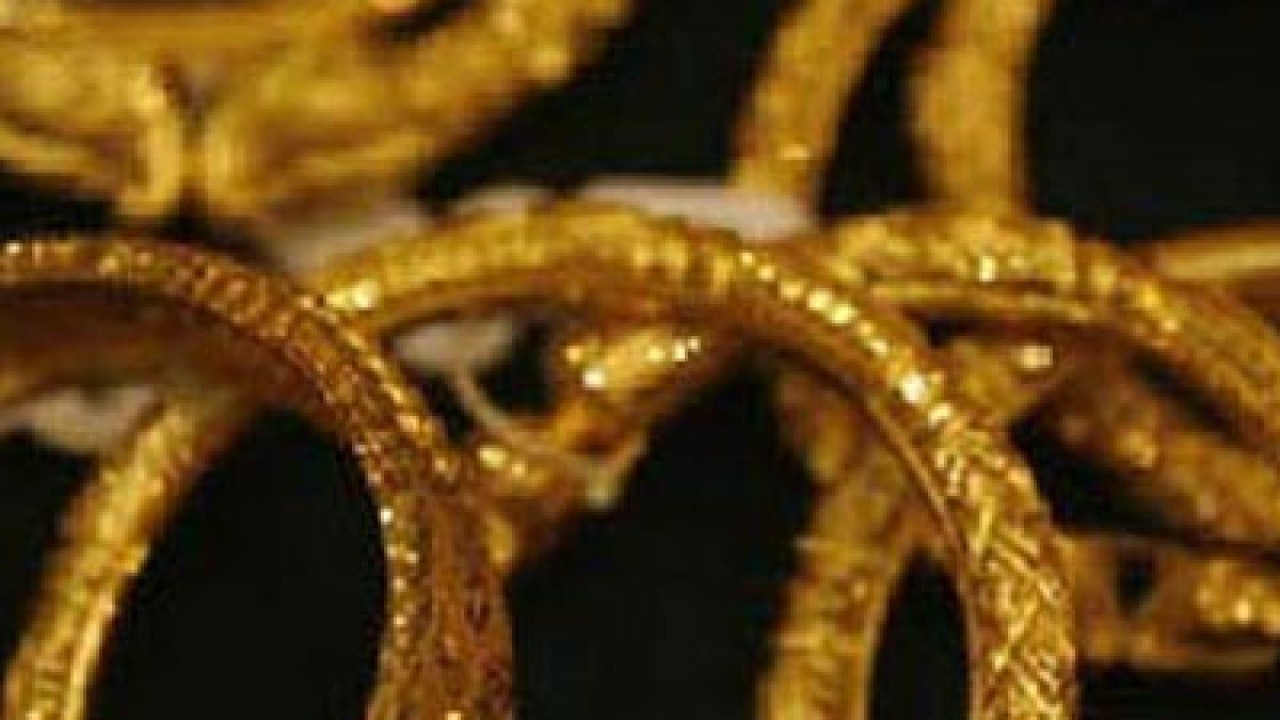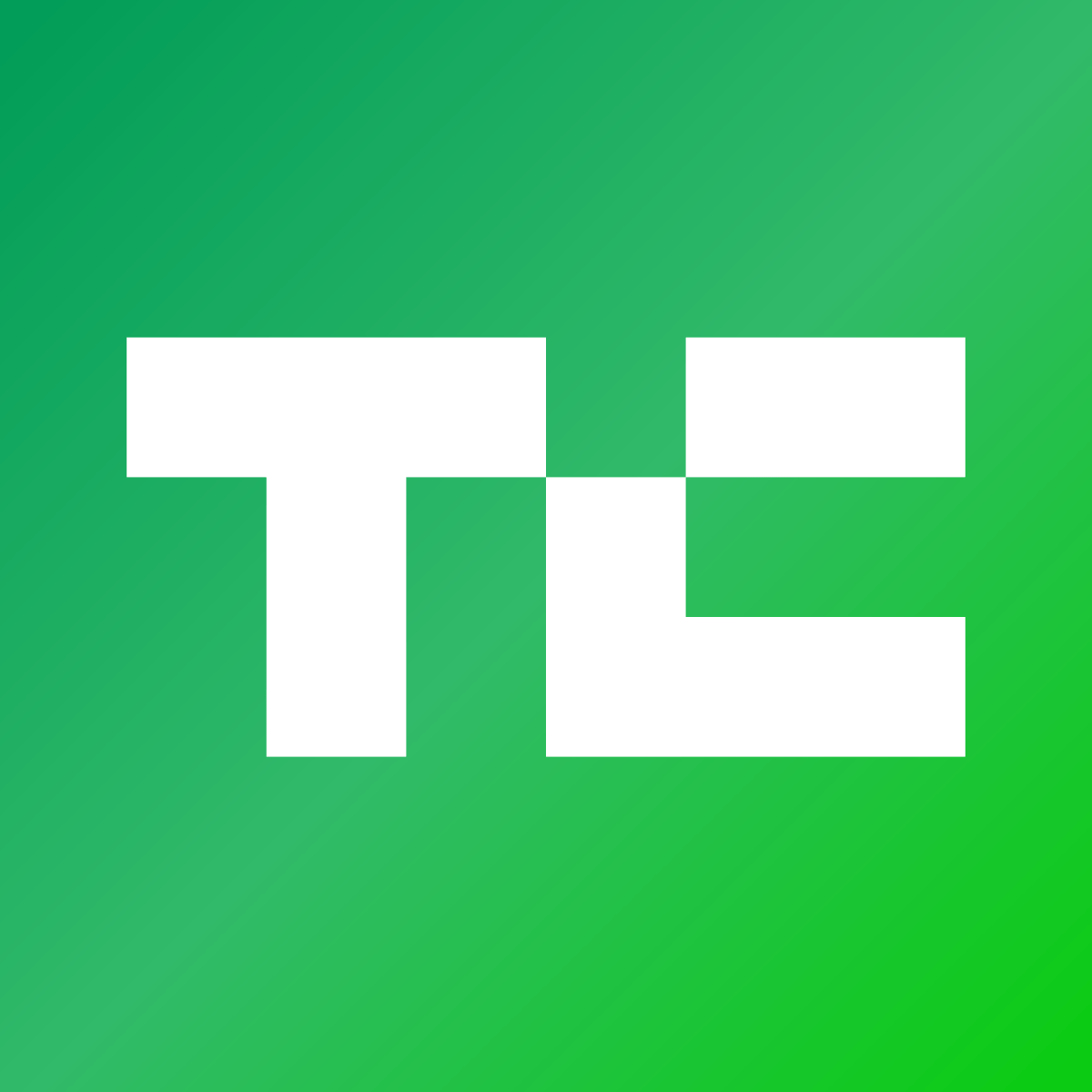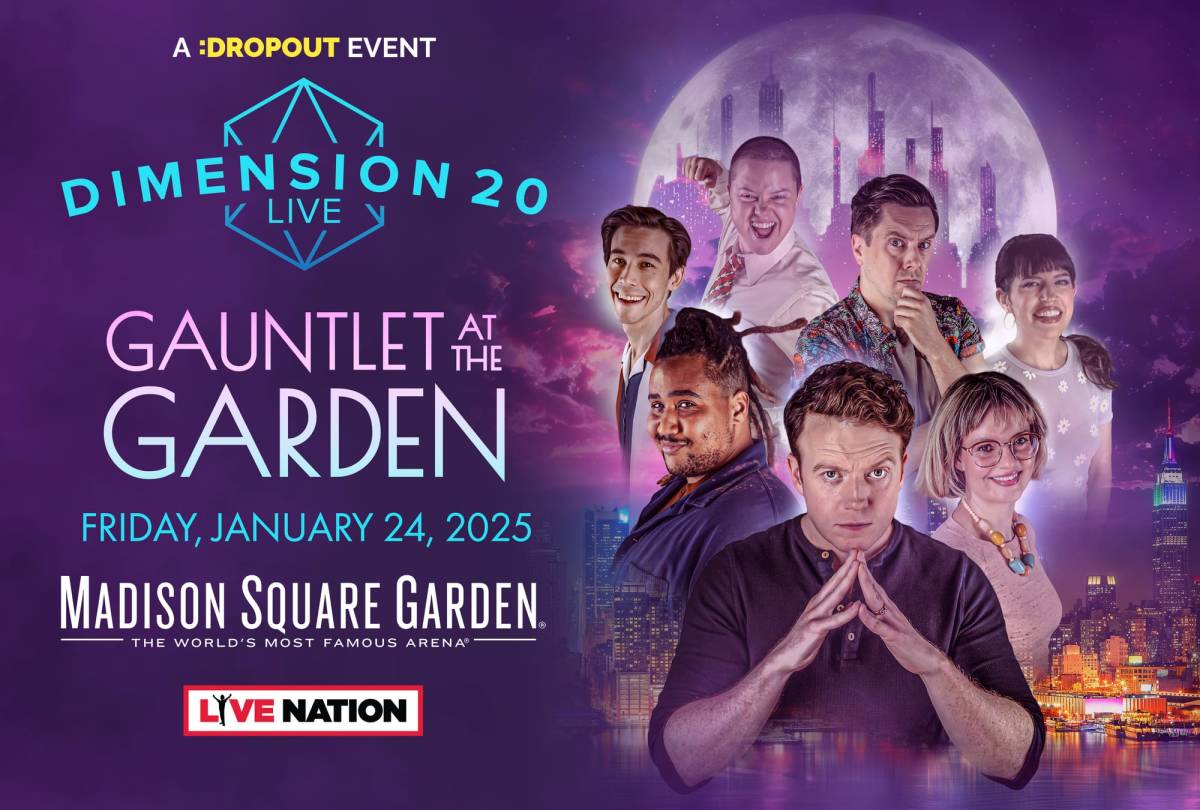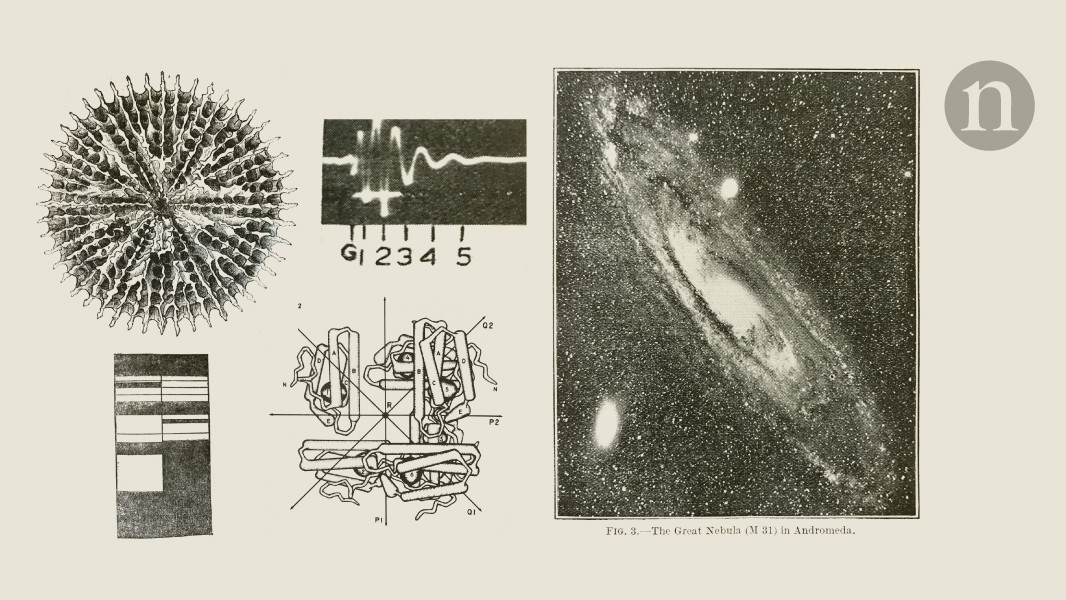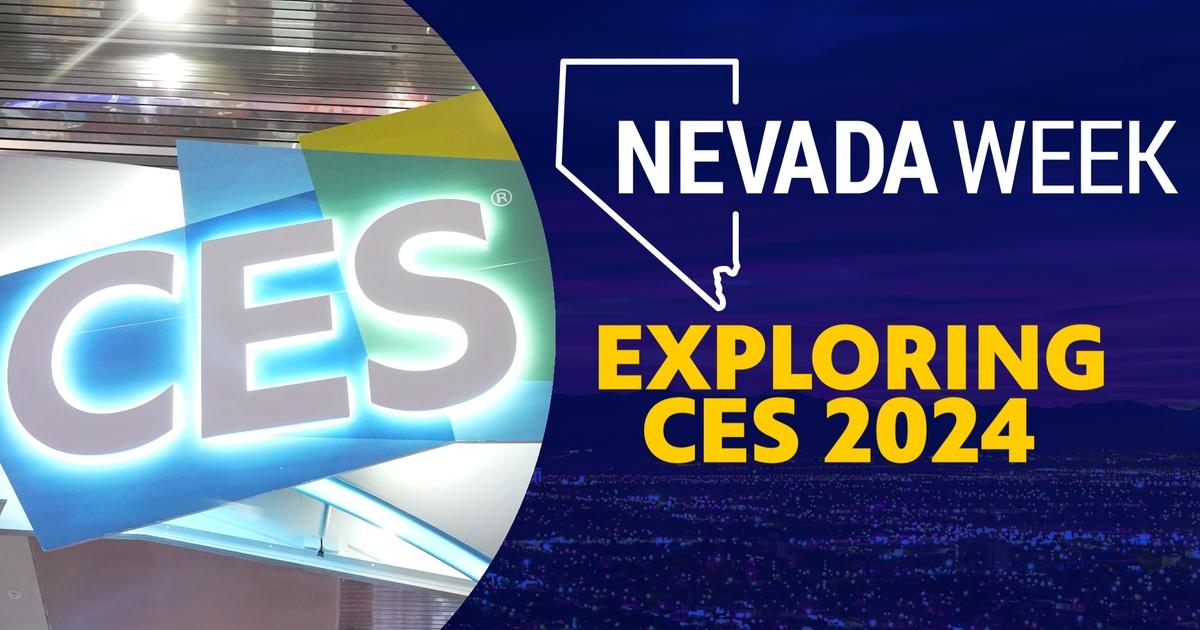
- Select a language for the TTS:
- UK English Female
- UK English Male
- US English Female
- US English Male
- Australian Female
- Australian Male
- Language selected: (auto detect) - EN
Play all audios:
It's a wonderland here at CES 2024. I'm Maria Silva. From AI to robots and flying vehicles, we are showing you the latest and greatest tech and gadgets here at CES. ♪♪♪ Support for
Nevada Week is provided by Senator William H. Hernstadt. -Welcome to Nevada Week. I'm Amber Renee Dixon. This year, the Consumer Electronics Show welcomed more than 4,000 exhibiting
companies and expected up to 130,000 attendees. Taking part in one of the 250-plus conference sessions was the Culinary Union whose concerns about technology we're going to discuss
ahead. But we begin with an interview I did at CES. Nick Wolny is the senior editor at CNET, a consumer tech website that sent more than 20 people to cover this year's event where
artificial intelligence was just one major theme. All right, so AI is so prevalent at this year's CES. In that arena, what has stood out to you? (Nick Wolny) One of the biggest things
we're seeing in terms of AI regulation and AI quality is that we're seeing a lot more practical AI usage. So rather than it being this scary, almost dystopian thing that's
going to take our jobs and take over the world, we're seeing a lot more data processing and a lot more AI usage on the back end that makes it easier for us as consumers to just live
simpler, happier lives. For me, I tested a Magic Mirror the other day, a smart mirror. What it did was it did a blood flow scan of my face over a 30-second period. And then it took that
information and ran it through an engine. It ran through AI on the back end and gave me a quick health analysis. It was surprising. We were joking. I was a little miffed because it said I
looked five years older than I did. And I was like, What is this? But it actually also had some of the other health markers quite accurate. I'm someone who has slightly above average
cholesterol, and this mirror clocked in. And so it's really impressive the way that these companies are using AI as a way to process data more quickly and give you more immediate
results for things like body scans. -I got to try it myself as well. I was surprised to see that I only had a 2.5 score on a scale of 6 for mental stress. -Yeah. -But it measures--
-It's early in the event. Maybe that's why. -The woman who was operating the machine, she previewed it. She had a high level, I felt. -I bet, yes. These booths are a lot, yeah. -I
want to read a quote from Investor's Business Daily and see what you think of it. Quote, Companies including Intel, Walmart, Best Buy, and Snap are expected to tout AI-enabled products
and services, even if it's just marketing spin for some. And that was about this year's CES and the prevalence of AI. What do you think of that? -I think it's pretty accurate.
We see some brands and exhibitors here that are touting their AI benefit. And it's honestly nothing special. It's just it is that marketing spin. It's an excuse for them to
introduce mostly the same product with perhaps a little bit of extra integration in AI. It kind of harkens back to several years ago when all of the different exhibitors were touting their
Alexa integration. "We've added voice control." It's like, do you really need voice control for this particular product? And so we're seeing some of that. So
we've got our eyes out on what are the specific components where AI is actually making a transformative difference in quality of the product, the quality of the consumers'
experience as well. -Why are these companies including it if it's just spin? -Because AI has been dominating media coverage for well over a year. I would really pin that on ChatGPT.
When that came out at the end of November 2022, that was the first time a lot of people experienced a powerful AI technology for themselves. So really, that move pushed AI into mainstream.
AI has been around for several years. But in terms of the lay consumer, like us, experiencing the power of AI, like, "Suggest me a recipe based on these ingredients," all these
things, those instant results, it became very buzzy. It also just became a very reliable hook from a media perspective. So as these companies are really jockeying for more media coverage,
AI, it's a very reliable worm on your fishing hook if you want to get some extra coverage. -Okay. So AI inclusivity and sustainability are the trends that the Consumer Technology
Association says we should be watching for at this year's CES. In the sustainability arena, there's a product that stood out to both you and I, and that is the Genesis WaterCube.
Will you tell our viewers what it does. -Yeah, this WaterCube pulls in air and converts it into drinking water in real time. And it's those kind of big idea solutions that have
incredible green energy applications that are really exciting and that make this event pretty phenomenal. And so just in terms of that technology, it's really exciting to see these
different exhibitors tackling really big challenges: climate change related challenges, sustainability related challenges, all these different things. This is the place for those exhibitors,
for those scientists, for those brands to showcase that latest technology. And also the great thing about this being back to being in person is that people can try some of these
technologies in person. Our energy editor, Jon Reed, he tried out the WaterCube. He got to test drinking water. He got to drink the drinking water made from the air that is around us right
now. -That is wild. And they're advertising it as it's better water than you're gonna get out of your faucet. And you can just replace that water. You don't need to rely
on water anymore from anyone else except your own cube. -Yeah. And it's so cool that we see these technologies that are solving problems that we didn't even think were solvable.
Right? I never thought-- when thinking about the drinking water crisis, I never thought to myself, oh, use the air that's around us as the solution. But these people figured it out. So
that's something that's, it's nice to be surprised. It's nice to be taken off guard at this event. -I was able to talk to one of their cofounders, and they said that each
unit would cost about like $20,000. And they would recommend for someone living in Las Vegas where it's so dry, they might need two of them. So it's not quite attainable at this
moment. Not for everyone, certainly. -Right. And I also think that these premium prices come along for some of these products for one of two reasons: One, it's the only product in the
market. And so as other water cubes get made, that would potentially bring the price down. And then I think the other big component is we saw this in some of CNET's social media
comments, is that, Wait, this is a Consumer Electronics Show. Like, why are the prices so high on some of these things? And it's that while the product might be for consumers, it might
not be for a consumer to buy, per se. You could also see that WaterCube or other products being bought by a gym or being bought by other brands or things like that. For the Magic Mirror,
they don't want that in your bathroom, per se. They want to be in every Walgreens in America. And they want people to just be able to experience it. So it's the consumer
that's going to experience it, but it's not always the consumer that's going to purchase that particular product. -And that cofounder also said that-- I asked who is buying
this, because they're taking preorders. He said a lot of developers are including that in home development so you can buy a home with one of these cubes. -Yeah. -Just really neat stuff.
There are a lot of tremendous products here: flying cars, robotics, you name it. But among everything you've seen, what's likely going to end up in the hands of the average
American consumer, the one that's reaching out to you on social media? -There's definitely a category of products here that are meant to be home products, energy products,
handhelds, things like that. Yesterday, I got to demo a new iPhone case that has a physical keyboard on the bottom of it. So if you ever used a Blackberry or something like that, this goes
onto your iPhone and basically adds a keyboard to your iPhone. It's been getting a lot of buzz on social media. It's called Clicks. I got to do a preview of it while we were here.
And that's a product with a $139 price point, so something that people could realistically see themselves picking up. They might see themselves picking up now. Even though CES is a
trade show, we've definitely seen in recent years that direct-to-consumer brands will come along, and they'll showcase a product that just gets a lot of buzz. We were talking
earlier about ColdSnap, which was another product. "The Keurig of ice cream," is the best way to describe it. And so the first night on the media preview, the "CES
Unveiled," you just saw all these people walking around with cups of ice cream. It's like, what's going on? They're like, Oh, I got it autodispensed to me from this
ColdSnap booth. So seeing stuff like that is really exciting as well. Even though it's a trade show, not everything is completely focused on, you know, business partnerships only. Some
products, they're like, Hey, we've got the order form right here. You want to buy it now? They're trying to definitely jockey for some media coverage and be able to pick up on
some sales and stuff as a result of media. -Free ice cream will get any media member, right? -That's my love language. That's why it's in my brain. -Last thing: As we walked
here, we're in the North Hall now, but we saw an exhibit of the 100 years of CTA, the Consumer Technology Association, which produces CES. What stands out to you about the 100 years?
Why is that significant? -It's amazing that they've been doing this for 100 years, the association has been around for 100 years. It also just really shows that people will always
care about the future, and they'll always be excited about the future. You know, this year I think there's 140,000 people here that came here in person to Las Vegas to get inspired
about the future. And technology is something that really does that for us. Yes, it has its pros and cons. Technology can be used for good or for bad, but it will always be inspiring.
It's always exciting to see what sort of new things are coming down the pipe that in a few years might just become our new day-to-day life. And this is the place; this is definitely the
epicenter of where we get to see what kinds of technologies those will be. I'm not surprised, 100 years and still going strong. -Nick Wolny, Tech Expert and Senior Editor at CNET,
thank you for joining us. -Thanks for having me. -Sony, Panasonic, Bosch, and LG, those were just a few of the household names at CES this year. Maria Silva continues our CES coverage now.
She stopped by one of those booths and has more. ♪♪♪ -Let's impress... Like a Bosch... CES. -We are energized like a Bosch. And joining me now with a little coffee over there is Mike
Mansuetti, the president of Bosch North America. Thanks for joining me. (Mike Mansuetti) Welcome to the Bosch booth. How are you? -I'm energized! -You're energized. You are.
Lovely. You don't need more coffee? -Tell me about this because I do love coffee. -This is our new countertop bean-to-cup coffee maker that we're debuting here for the US market.
It will be available mid-year here. So connected with our Home Connect app, actually looking at some interesting stuff, as we're a mobility company as well. Connected to the car, so we
have an occupancy sensor and driver detection, drowsiness detection. If you're drowsy, maybe the car might ask you, Do you need a cup of coffee when you get home? It can talk to the
coffee maker, and the last bit of froth is coming out on your cappuccino when you drive up in the driveway. -I'm loving it. You had me at "coffee" there. We're moving
along. We are here. We're talking about being energy efficient. We have the washer and dryer over there. What do we have for the smart home? -So just like the washer and dryer and the
dishwasher through our home connect deck, you can actually choose when you want to run them. Maybe when energy is cheapest or green energy is available. So we have a lot of stuff for the
home. We're introducing also our new Alterra IDS heat pump, which operates at extremely low temperatures. This operates down to 5 degrees Fahrenheit or minus 13. And we also have the
highly efficient heat pump water heater technology. -And every home needs that. -Every home needs hot water. -Let's talk. Like I said, I love the fact that it is getting energized like
a Bosch. Tell me about that. -"Like a Bosch," is our campaign. The theme, really, is "Invented for Life" at Bosch. So we introduced "Like a Bosch" at CES
several years ago, and we might see John running around here, our spokesperson. -Surprise! It is energized like a Bosch. -We have fun with John and "Like a Bosch." So the theme,
again, at CES is "Energized like a Bosch." We're talking about things for the home or mobility. We're talking about also fuels like hydrogen. There's a hydrogen fuel
cell truck running around with our partner, Nikola, outside the Convention Center. It has one of our hydrogen fuel cells in a Class A vehicle. -That's what we've been hearing here
at CES. It's about AI, but really sustainability is a huge topic. -At Bosch, we're also very interested in sustainability, especially, we're showing off our eBike. So if you
look at mobility, things from eBikes to automotive to even things for the home, this "electrified" runs across our entire product. One thing that might be interesting as we talk
about battery electric vehicles, charging becomes an issue. So we're also showing off our automated valet charging. So you can just hit a button on your phone, and the car goes to the
charging station, connects, and charges itself. -All by itself. That's the beauty of technology. -Like a Bosch. -Energized like a Bosch. What do you want people to know about Bosch?
-Bosch, I mean, most people know us maybe for our dishwashers, but we do have-- what we love about CES is we're able to display our whole product range. So really, we go from coffee at
the one end, through our home and residential, even industrial, even into mobility, and then even into software. We can do it all. -Loving also what you have going on right now. It's
that full body motion tracking. Let's talk about that. That's kind of cool. -So we're one of the world's largest producers of MEMS sensors, micro-electromechanical
sensors. And these MEMS sensors are outfitted on this gentleman, and it can track your motion. So it's an accelerometer, and we're introducing here at CES the newest and lightest,
smallest and lowest power consumption sensor. And that's what he's showing off in the demo right now. -And that one is fun, because earlier, he was dancing or doing exercises.
-Yeah, so what it is, is it helps. The sensors can help track the body motion. And a lot of applications not only in gaming, but also in healthcare. -Okay, you guys. Know that if it's
something interactive here at CES, I have to give it a try. I'm going too fast. Okay. -Now you've got it. Now you are a bit better. You see like high scores everywhere? -Woohoo!
-And if you want to do like the best level there is, I would really suggest you do the Level 3. -Okay. Let's do it. Oh, yeah! [laughter] -All right! Challenge accepted! I'm going
to try that. Woo! All right. From CES, Maria Silva. Amber, back to you. How was that? -Perfect. -All right. -As we've shown you, technology can certainly help us, but it does have
limitations as expressed by Elena Newman, a Culinary Union Executive Board Member and a Guest Room Attendant on the Las Vegas Strip. (Elena Newman) Your smartphone doesn't clean rooms.
We clean rooms. [applause] Where in the world they can find a smartphone that clean rooms? We clean the rooms. -Newman participated in a panel called "When Workers Fight, We Win"
at CES's Labor Innovation and Technology Summit. And here now to expand on what was discussed is Ted Pappageorge, Secretary Treasurer for the Culinary Union, which represents 60,000
hospitality workers. Thank you for joining us. (Ted Pappageorg) It's my pleasure to be here. -I want to run another excerpt from the guest room attendant we just heard from. And in it,
she talks about a recent Culinary Union victory involving smartphones. Let's take a listen. -We decide which room to clean, because if there's a smartphone decide which one to
clean, they will send us to different floor, different wing. Imagine pushing that heavy heart-- I mean, heavy cart full of stuff, running here and there. Where are you going to get your
energy to finish your credit? -All right. So help me understand how this worked. At what point did hotels say, You got to start using a smartphone to determine the order in which you clean
rooms? -Well, that's been around for quite a long time, but the reality is technology is something that we deal with in every level in the service industry, whether it's mobile
ordering or robotic bartenders or smartphones or tablets that a guest room attendant and room cleaner has to use in order to be able to get their daily work done. Cleaning rooms is physical
work; it's hard work. And those guest room attendants have to be able to put their day together to hit their quotas. And what happens is we had a big fight with the companies on this
about the smartphones and these tablets that will send a guest room attendant all over the hotel, chasing checkouts we call it, instead of being able to maintain their station and be able to
do the work in a reasonable and safe manner. And we won that fight. And Elena talked about it, but we had a lot of other issues when it comes to dealing with technology and workload,
especially with housekeepers. And this last contract that we negotiated, we're really proud of it and we did well. -So then in that situation, were more rooms ending up getting cleaned
as a result of the smartphone's orders? -No. No, we don't think so. And what happened is it's very disruptive. And there's a few things that happened, and you all, when
you stay in a nice hotel like one in Las Vegas and you see the room cleaners pushing these very large carts, the smartphones would sequence themselves. So the split second a room is
available, they would move them out of their stations to 10 floors above to the next checkout. We call that "chasing checkouts." And it just added incredibly to the workload and
wear and tear on these workers. And so we weren't gonna accept that. And it was a strike issue to be able to deal with reducing workload per guest room attendant, making sure that we
had stations that folks could work in, and then daily room cleaning to make sure that rooms aren't dirty day after day to make the work even harder and kind of reduced the experience
for the guests. Then on top of that, just dealing with technology and these recent contracts. It was-- they were all strike issues, and luckily, the companies came around and we got a fair
agreement. -And I was taken aback by her talking about smartphones, because they've been around for a long time. And when I thought of what the Culinary Union might be concerned about,
I am thinking robotics. I'm thinking a housekeeper like from The Jetsons. What are the types of technology that here and now are really concerning you? -Well, let me just take a little
step back, because the issue of what we do in negotiations with tech means that we've got three areas we have to deal with. And that's with this issue of notification. Our contract
says they gotta tell us six months ahead of time before they bring in new technology that can eliminate a job. Then our contract says you've got to give training, and it's free
and required that the company gives it or our training academy gives it. And then if folks are left behind, there's a safety net with a severance and health care and pension. And we
need that because it's the idea of robotics combined with artificial intelligence. In 2018, we had a huge fight. It was the last issue before the strike was our tech language, which was
brand new. But we fought with these companies for the last five years over properly introducing tech and not just throwing out workers like old shoes. But then this time, the idea of
artificial intelligence, there's just so many more capabilities. So whether it's mobile ordering or trying to eliminate cashiers or eliminating a food server or sequencing and
using smartphones and tablets in the rooms, robotic bartenders that push out mass drinks, you know, not these kind of novelty type bartenders you see in the front window of the mall-- -Like
at Planet Hollywood. -Exactly. So those issues are job security issues, and they have become top issues along with health care, wages, pension, and job security. -And I was wondering, I
mean, how many jobs have been lost to technology within the Culinary Union? -Well, we've lost 10,000 jobs, our union, coming out of the pandemic. It was a combination of companies are
quick to lay off and slow to bring workers back to work. So that's part of it and trying to preserve these, these profit margins by having less workers doing more work. But then
there's this issue of technology, and we've been able to organize and grow, which is the number one priority of any union, like any company. They want to grow? We have to grow to
be able to keep our power and our density. And so we brought back about 3,000 of those jobs. We had a big year last year with the Venetian, the Sphere, and the Fontainebleau. And we'll
be negotiating those contracts this year. But, you know, the issue of jobs being lost by tech is a-- it's a question, because we think there's going to be plenty of jobs in Las
Vegas. The question is we don't know what they're going to look like. The companies don't know what they're gonna look like. They just don't know how fast this tech
is coming out. -How much does being at CES help you predict the future? -Well, it generates a significant amount of fear, first of all, because it's overwhelming. And the type of
robotics and combining that with artificial intelligence, you could panic and say, all right, we're all getting replaced, and the robots are gonna run the world. But that's really
not what happens. So for us being at CES physically to see the exhibits is only one part. But the other part is this idea of bringing all of labor together to our labor summit. And so we
spend the second half of each day that we're here with several unions. We brought our entire staff, over 100 folks, to the summit to really tackle these issues and how we can work
together and deal with technology, because we're all carrying something in our pocket that we love and we're never going to get rid of. Most people would cut their hand off before
they get rid of their smartphone. But the idea of making sure that we get-- our contract says six-month notification. So they can't bring in tech that's going to affect our jobs
without giving a six-month notification. That means that we're there to deal with prototypes, development, to talk to vendors, and give us enough lead time to really get people the
right training so that the company can't eliminate them. And that discussion happens at the summit with all these other unions to figure out that kind of language. -Those technology
protections are going to be part of the contract that you're negotiating right now with the 21 properties on the Las Vegas Strip and downtown? -Well, the key piece of that is that with
artificial intelligence, the problem is that jobs could be eliminated by introducing a robotics combined with artificial intelligence, but AI can grow and learn. Capabilities can grow. So
they would have another bite at the apple of potentially eliminating jobs down the road with the same technology. And our language had to be expanded to make sure that if I'm not
eliminated now, but I get eliminated later, I still qualify for notification, I qualify for the training, and I qualify for a severance. And our severance is $2,000 per year worked. So if I
worked 30 years for the company, that's a $60,000 check if you're eliminating me because of tech. And that tech language that we won with MGM, Caesars, and Wynn Resorts is the
one-- we're negotiating with these 23 other contracts that we have coming up. And we have a strike deadline coming up of February 2. -Right. And to those who would say, That is some
unique timing, it's just nine days before the very first Super Bowl in Las Vegas. Those who claim you're using that as leverage to get better terms, what would you say? -Look, I
would say two things: One is that Las Vegas is the entertainment capital of the world. It's sporting capital of the world. The reality is, every weekend is a big weekend in Las Vegas.
It doesn't matter what weekend it is. CES is a great example of that. The other thing I would say is that companies forget that they can't do what they do without the workers. And
these fabulous profits, these record profits, these record room rates, these record margins can't happen without workers. And we want companies to do well. They need to do well. But if
they are having a record year, workers should get a record contract. And these contracts have been expired since June, so we have to have a deadline. These workers need to know that their
jobs are going to be secure. -As you explained to me off camera, you were working to get the MGM, Caesars, and Wynn deal done, because that's going to lead the way for all these other
deals. -Well, they're the largest companies here, and until they make a decision and we can come to an agreement with or without a strike, no other company is going to move forward. But
this-- -I have to cut you off because we've run out of time, but we're gonna have you back on. -I'm ready whenever you want to have me. Thank you. -Ted Pappageorge, thank you
for joining Nevada Week. And thank you for watching. For any of the resources discussed, go to vegaspbs.org/nevadaweek. ♪♪♪
